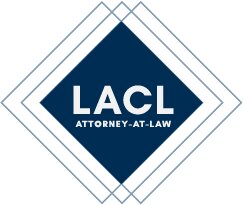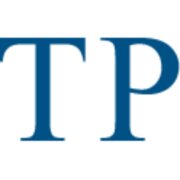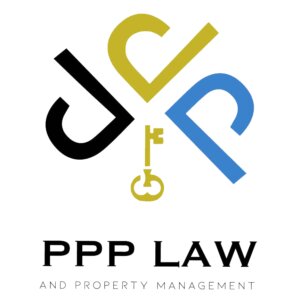Best Public-Private Partnerships (PPP) Lawyers in Huai Khwang
Share your needs with us, get contacted by law firms.
Free. Takes 2 min.
List of the best lawyers in Huai Khwang, Thailand
About Public-Private Partnerships (PPP) Law in Huai Khwang, Thailand
Public-Private Partnerships (PPP) are collaboration agreements between government agencies and private sector entities to finance, build, and operate projects that serve the public interest. In Huai Khwang, a central district in Bangkok, Thailand, PPPs often relate to infrastructure projects such as transportation, utilities, public buildings, and technology services. These partnerships are governed by a mix of national legislation and local regulations aimed at ensuring transparency, value for money, and public benefit. PPPs offer advantages such as shared resources, risk mitigation, and efficient project delivery, but also involve complex legal arrangements that require careful management.
Why You May Need a Lawyer
Engaging in a Public-Private Partnership in Huai Khwang, Thailand presents a range of legal challenges. You may need the support of a lawyer in cases such as:
- Drafting and negotiating PPP contracts
- Navigating regulatory approvals with local government authorities
- Assessing risk, liability, and financial obligations
- Resolving disputes between public and private partners
- Ensuring compliance with both local and national procurement laws
- Protecting intellectual property and proprietary technology
- Conducting due diligence on partners and assets
- Managing project financing and investment structures
- Dealing with land use, zoning, and construction permits
A lawyer experienced in PPP law can guide you through these processes, helping safeguard your interests and ensuring any agreement complies with Thai legal standards.
Local Laws Overview
Thailand's legal framework for PPPs is primarily defined by the Public-Private Partnership Act, which applies throughout the country, including Huai Khwang. The Act outlines procedures for project selection, approval, contractual structures, and dispute resolution mechanisms. At the district level, local authorities and the Bangkok Metropolitan Administration (BMA) play key roles in project implementation and supervision.
Essential elements of PPP law in Huai Khwang include:
- Mandatory project proposals and feasibility studies before commencing a PPP
- Competitive bidding and transparent procurement processes
- Defined timelines for project approval, contract signing, and implementation
- Provisions for land acquisition and environmental compliance
- Monitoring and reporting requirements for ongoing PPP projects
- Government guarantees and incentives for certain qualifying projects
- Clear mechanisms for resolving contractual disputes
Understanding these legal requirements is crucial before entering a PPP agreement in Huai Khwang, as failure to comply can lead to project delays, penalties, or contract termination.
Frequently Asked Questions
What is considered a Public-Private Partnership (PPP) in Thailand?
A PPP is a formal partnership between government entities and private sector companies to finance, construct, or operate projects that deliver public services or infrastructure, based on shared risks and rewards.
Do I need government approval for a PPP in Huai Khwang?
Yes, all PPP projects require approval from relevant government authorities, including compliance with the PPP Act and confirmation from local government bodies such as the BMA.
Who can initiate a PPP project in Huai Khwang?
Both public sector agencies and private companies can propose PPP projects. Typically, government agencies release project opportunities, but private entities with innovative solutions can also submit project proposals.
What are the benefits of PPPs compared to traditional government procurement?
PPPs can deliver projects faster, leverage private sector innovation and resources, distribute risks, and potentially offer better value for money than traditional public procurement.
What risks should I consider before entering a PPP?
Key risks include financial exposure, project delays, unforeseen regulatory issues, dispute resolution challenges, and shifts in public policy that could impact project viability.
How are disputes between public and private partners resolved?
Dispute resolution is usually set out in the PPP contract and may involve negotiation, mediation, arbitration, or local court proceedings, depending on the contract terms.
Is foreign investment allowed in PPP projects in Huai Khwang?
Yes, but foreign investors must comply with Thai foreign business laws and may be subject to restrictions or special requirements depending on the sector and project size.
What is the typical length of a PPP contract?
PPP contracts can range from five to thirty years or more, depending on the project's size and complexity, with options for extension or early termination under specified conditions.
Are there incentives for PPP projects in Thailand?
Certain PPP projects, especially those aligned with government development goals, may receive incentives such as tax benefits, land grants, or government guarantees.
How can I protect my interests in a PPP agreement?
It is important to have a clear and comprehensive contract, conduct thorough due diligence, seek legal advice, and ensure compliance with all legal and regulatory requirements.
Additional Resources
For those seeking further information or assistance on PPPs in Huai Khwang, the following organizations and resources can be invaluable:
- Public-Private Partnership Committee (PPP Committee) of Thailand
- Office of the State Enterprise Policy Committee (SEPO)
- Bangkok Metropolitan Administration (BMA) Legal and PPP Units
- Thai Chamber of Commerce
- Board of Investment (BOI) Thailand
- Local law firms specializing in infrastructure and governmental contracts
- International organizations providing guidance on PPP best practices
Contacting these bodies can help clarify legal requirements and provide helpful support throughout the PPP project lifecycle.
Next Steps
If you are considering participating in a Public-Private Partnership in Huai Khwang, Thailand, it is recommended to:
- Conduct preliminary research on the types of PPPs and potential partners
- Consult with a lawyer who specializes in PPP and public procurement law in Thailand
- Engage with relevant government bodies to understand available opportunities and requirements
- Prepare necessary documentation such as project proposals and business plans
- Ensure all compliance and legal review checks are completed before signing any agreements
Taking these steps will position your project for success and help you navigate the legal complexities of PPP arrangements in Huai Khwang, Thailand.
Lawzana helps you find the best lawyers and law firms in Huai Khwang through a curated and pre-screened list of qualified legal professionals. Our platform offers rankings and detailed profiles of attorneys and law firms, allowing you to compare based on practice areas, including Public-Private Partnerships (PPP), experience, and client feedback.
Each profile includes a description of the firm's areas of practice, client reviews, team members and partners, year of establishment, spoken languages, office locations, contact information, social media presence, and any published articles or resources. Most firms on our platform speak English and are experienced in both local and international legal matters.
Get a quote from top-rated law firms in Huai Khwang, Thailand — quickly, securely, and without unnecessary hassle.
Disclaimer:
The information provided on this page is for general informational purposes only and does not constitute legal advice. While we strive to ensure the accuracy and relevance of the content, legal information may change over time, and interpretations of the law can vary. You should always consult with a qualified legal professional for advice specific to your situation.
We disclaim all liability for actions taken or not taken based on the content of this page. If you believe any information is incorrect or outdated, please contact us, and we will review and update it where appropriate.













